Does brick need to be sealed to prevent efflorescence?
threeapples
10 years ago
Related Stories
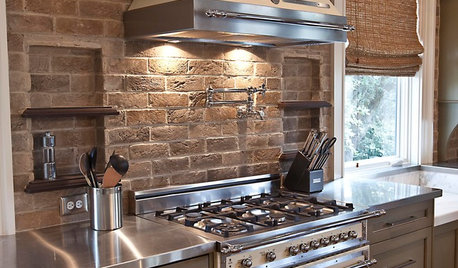
KITCHEN DESIGNYes, You Can Use Brick in the Kitchen
Quell your fears of cooking splashes, cleaning nightmares and dust with these tips from the pros
Full Story
DECORATING GUIDESWhat You Need to Know Before Painting Brick
Sure, painted brick can be a great look. But you need to take some risks into account. Here's how to paint brick like a pro
Full Story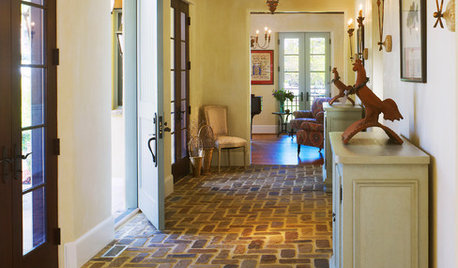
RUSTIC STYLEBrick Floors: Could This Durable Material Work for Your House?
You love the old-world look, but will you like the feel of it underfoot? Learn the pros and cons of interior brick flooring
Full Story
REMODELING GUIDESInterior Brick: Paint it or Leave It?
Here's how to know if covering that brick is a sin or solution
Full Story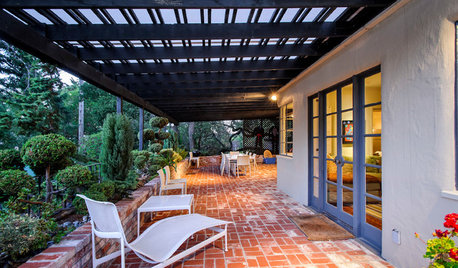
PATIOSLandscape Paving 101: How to Use Brick for Your Path or Patio
Brick paving is classy, timeless and a natural building material. Here are some pros and cons to help you decide if it’s right for your yard
Full Story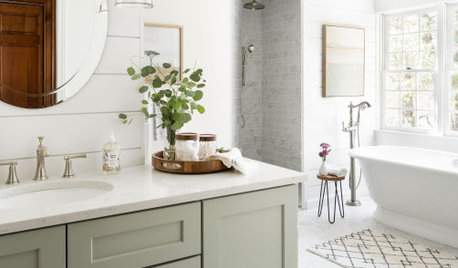
BATHROOM DESIGN14 Design Tips to Know Before Remodeling Your Bathroom
Learn a few tried and true design tricks to prevent headaches during your next bathroom project
Full Story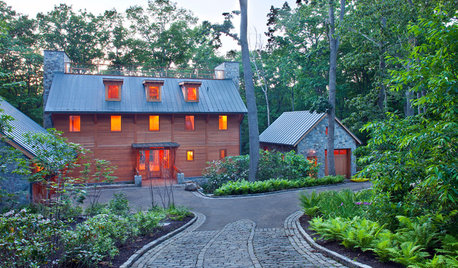
GREAT HOME PROJECTSHow to Give Your Driveway and Front Walk More Curb Appeal
Prevent injuries and tire damage while making a great first impression by replacing or repairing front paths
Full Story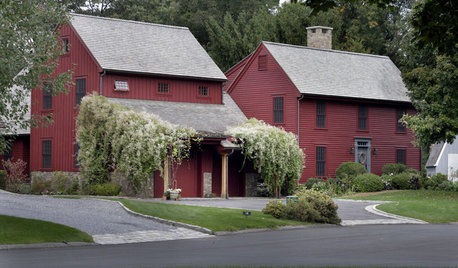
GREAT HOME PROJECTSReady to Repaint Your Home’s Exterior? Get Project Details Here
Boost curb appeal and prevent underlying damage by patching and repainting your home’s outer layer
Full Story
REMODELING GUIDESTransition Time: How to Connect Tile and Hardwood Floors
Plan ahead to prevent unsightly or unsafe transitions between floor surfaces. Here's what you need to know
Full Story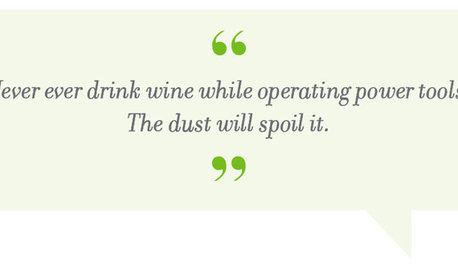
MOST POPULARSo You Say: 30 Design Mistakes You Should Never Make
Drop the paint can, step away from the brick and read this remodeling advice from people who’ve been there
Full Story





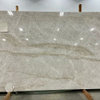



User
threeapplesOriginal Author
Related Professionals
Franklin Architects & Building Designers · Rocky Point Architects & Building Designers · Shady Hills Design-Build Firms · Aliso Viejo Home Builders · Arcata Home Builders · McKeesport Home Builders · Broadview Heights General Contractors · Dorchester Center General Contractors · Groton General Contractors · Jeffersonville General Contractors · Milford Mill General Contractors · National City General Contractors · Poquoson General Contractors · Rossmoor General Contractors · Tabernacle General Contractorsrenovator8
Epiarch Designs
Windows on Washington Ltd
threeapplesOriginal Author
dadereni
threeapplesOriginal Author
dadereni
threeapplesOriginal Author
ontariomom
dadereni
threeapplesOriginal Author
millworkman
renovator8
ontariomom
threeapplesOriginal Author